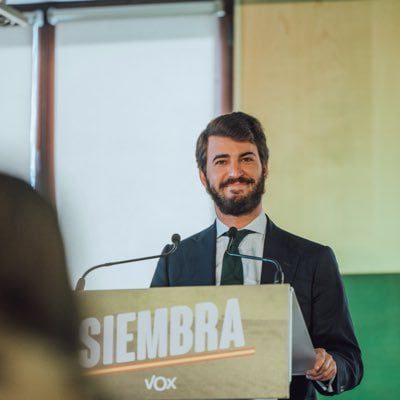
Spain’s Right party VOX has made another important step in its ascendency. After a windfall in regional elections in Castile-Leon in February, it entered its first coalition government with the centre-Right Partido Popular (PP). Following tense negotiations, the two parties agreed on March 10th to a legislative program and shared governance for the autonomous community of Castile-Leon.
The proposed policy program includes counterweights to several of the national government’s leftist policies that both the PP and VOX have opposed. Measures include expanding incentives for having children already popular in other parts of Spain, such as “baby checks” and free pre-school for children ages 0-3 years old. They also include promoting the family as “the basic institution of society and a pillar of the welfare state.”
In a clear move to counter the national Gender Violence Law, which focuses only on abuse of women by men, VOX and the PP propose to bring forward a regional Inter-family Violence Law to protect “minors, the elderly, women, people with disabilities, and vulnerable persons.” For the largely rural region, the program also lists several points friendly to agriculture, such as expanding irrigation. Seeking to protect farmers whose lives are endangered by their very livelihoods, they’ve included a clause specifically pressuring the central government in Madrid to change its ban on wolf hunting.
In the coalition government, VOX will have three ministerial positions, consejerias, as well the vice presidency. The Partido Popular will have the presidency and seven consejerias.
For both parties, governing together is a test for a new model for the Spanish Right. The negotiations for a regional government in Castilla-Leon coincided with an implosion in the PP that resulted in the resignation of party president Pablo Casado, who had been reluctant to pact with VOX.
Some theorise that his fallout with the party’s popular regional president, Isabel Díaz Ayuso, that led to his own downfall, was due to her pact with VOX in 2021 to form the Madrid regional government, though without creating a coalition government. At a summit of the European People’s Party on the same day that the PP-VOX pact in Castile-Leon was announced, Casado affirmed in his farewell address to his European colleagues that he had always rejected “pacting with the far Right,” though he didn’t offer specifics. Later that day, PPE President Donald Tusk criticised the PP-VOX pact in Castile-Leon and praised Casado as “a personal guarantee that the Partido Popular in Spain wouldn’t flirt with radicals and the far-Right such as VOX.” But many political observers see a PP-VOX coalition as inevitable for the divided Spanish Right.
The arraignment may also pose existential political questions for VOX, which has promoted itself as the outsider, the uncompromising alternative to the present political scene. The conservative citizens group usually supportive of VOX, HazteOir, has already been publicly questioning some of the party’s decisions in the Madrid regional government as disloyal to their campaign promises.
Within Castile-Leon, functional president and PP leader Alfonso Fernández Mañueco offered the pact as a guarantee for a stable government. VOX leader Juan García-Gallardo called it a chance to demonstrate the positive possibilities of a PP-VOX coalition.
